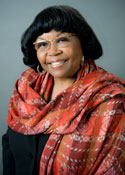
Concrete Batch Plants - House Bills 1280 & 1764
Resources
Actions
Concrete batch plants are both a blessing and a curse for the City of Houston. Our city's rapid growth is creating a nearly unquenchable demand for ready-mix concrete. Concrete plants play an essential part in Houston's vibrant and growing economy. But the plants tend to cluster in working-class, minority neighborhoods. They are a nuisance to these residential neighborhoods, belching pollution, dust and a cacophony of jarring industrial noise 24 hours a day.
Since 2014, Texas has led the nation in ready-mix concrete batch plants, with approximately 1700 facilities. According to a Houston Chronicle analysis, Harris County — with 188 plants — has by far the most. Dallas County has half that number. Representative Alma Allen's district alone includes 18 such batch plants. Industry officials expect Harris County's number to continue to climb, mirroring Houston's growth. For these reasons, the City supported Rep. Allen's House Bills 1280 and 1764.
House Bill 1280 by Rep. Allen would have amended section 382.058(c) of the Texas Health and Safety Code. It would have expanded the category of people who may request a hearing for an application for construction of a concrete batch plant. The bill would have authorized requests for hearing by the representative of a school, a place of worship, licensed daycare center, hospital or medical facility located within 440 yards of a proposed concrete batch plant.
House Bill 1764 also by Rep. Allen would have limited the location of TCEQ public meetings or contested case hearings to the state house district where the facility is located. Presently, the Texas Commission on Environmental Quality allows hearings for contested concrete batch plant permits to be located anywhere within the county that the proposed facility is located. Citizens requesting a contested case hearing for a proposed facility may be required to travel a significant distance to voice their concerns.
For those in socioeconomically disadvantaged communities who historically have had less of a voice in public processes and who have fewer resources to deploy to protect themselves, the burden of the current hearing process is onerous.
Unfortunately, neither HB 1280 or HB 1764 made it out of the Environmental Regulation Committee.
